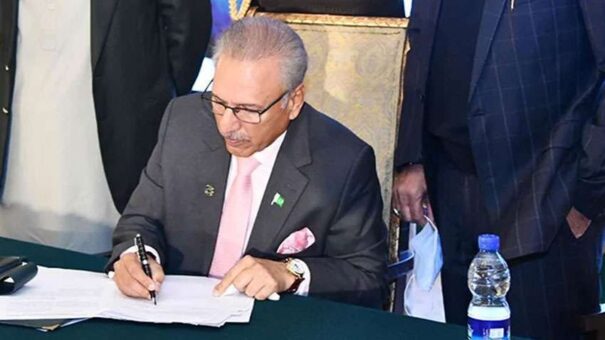President of Pakistan, Dr. Arif Alvi, Sunday ordered that a genuine tax refund cannot be refused even after late filing of a claim.
The President made this decision while upholding the Federal Tax Ombudsman’s (FTO) directive to the Federal Board of Revenue (FBR) to dispose of a private food company’s refund application, even though it was filed five to eight years late.
READ MORE: Pakistan sees surge in illicit cigarette sales after massive tax hike, says Philip Morris
The company had requested condonation in delay under the Sales Tax Act, 1990, for filing refund claims relating to the period of 2012 to 2016, as the sales tax amount of PKR 88.5 million was not claimed or adjusted in their previous sales tax returns due to technical issues at the company.
The President cited a Supreme Court judgment (PLD 1998 SC 64) that stated that a genuine refund could not be refused, even if the refund application was filed late. Dr. Alvi pointed out that the Constitution’s fundamental rights, as enshrined in Article 24 (1), postulate that no person should be compulsorily deprived of their property, save in accordance with law.
READ MORE: FBR and provinces harmonize sales tax on services with new uniform rules
The President reiterated that it was the duty of the state to return what had been taken erroneously or wrongly and that a democratic government could not take a plea of limitation to deny what was due to a citizen.
Dr. Alvi further referred to the Supreme Court’s decision in the M/s Pfizer Laboratories Ltd. Vs Federation of Pakistan case, which held that if one party, whether of fact or law, paid some money to another party (which included a Government department) that was not due by law, contract, or otherwise, it must be repaid.
READ MORE: FTO directs Lahore Customs to return $10,000 in currency seizure case
The President noted that where some money was received by the government not lawfully due, the plea of limitation by its departments was one which the court always looked upon with disfavour as it was violative of the principles of morality and justice.
The President concluded by stating that every government, which claimed to have ethical and moral values, must do what was fair and just to the citizens regardless of legal technicalities.
READ MORE: FBR urges citizens to stay informed about their financial transactions
He further reiterated that the fact that the amount of tax for which the refund was claimed was voluntarily paid did not preclude the right to claim the refund if it was not lawfully payable. The President rejected FBR’s representation, citing the commissioners of two different zones in the company’s matters of identical nature passing orders contrary to each other.
